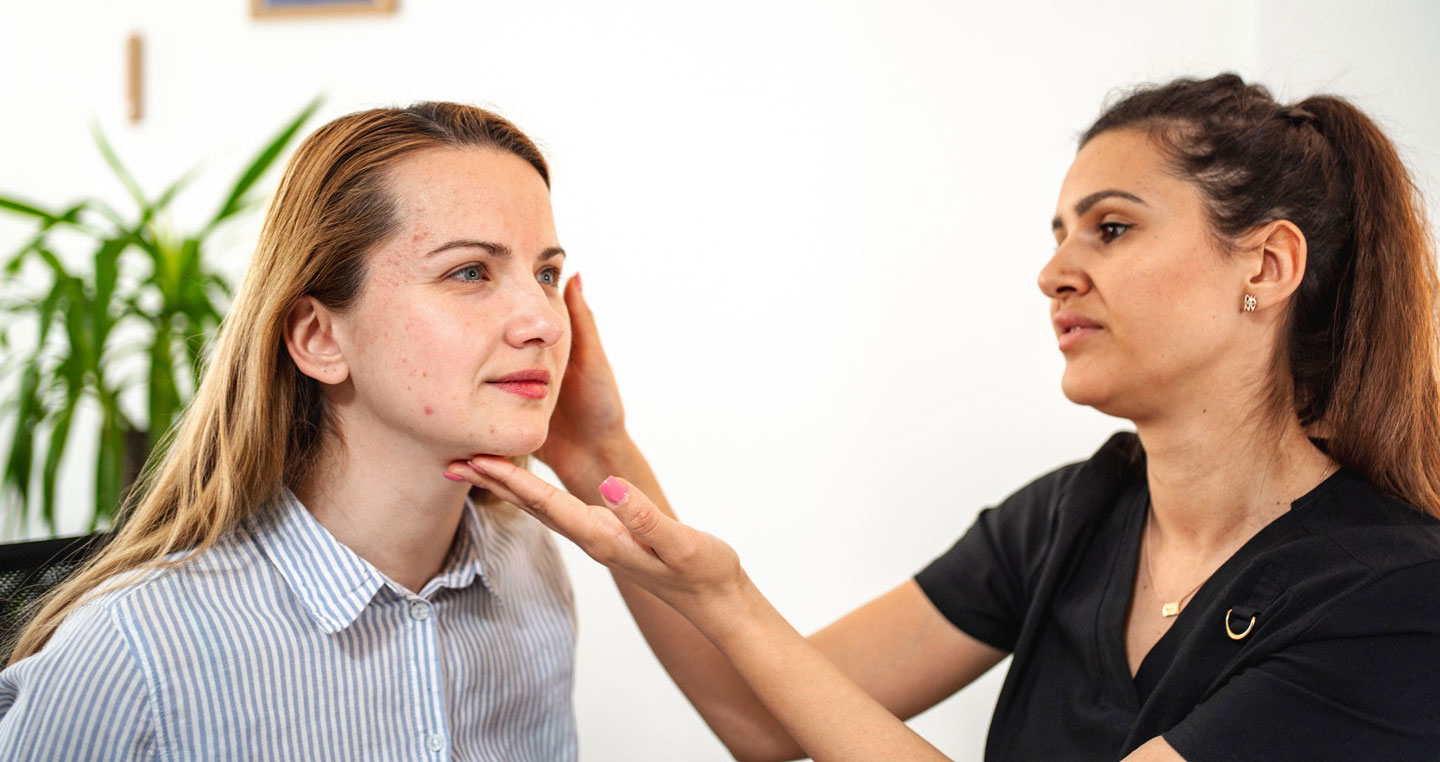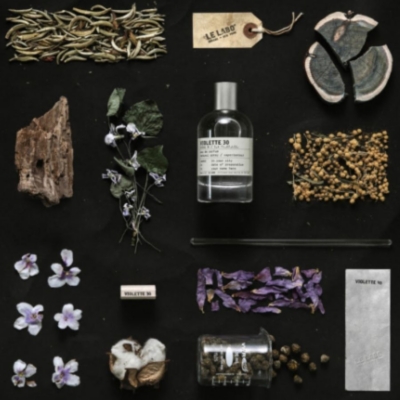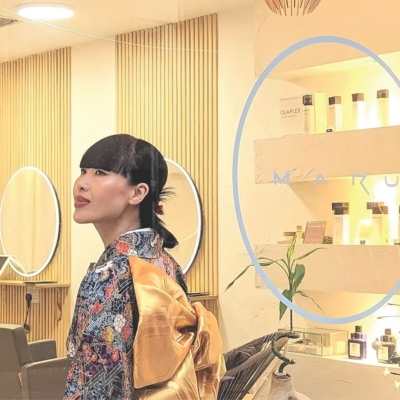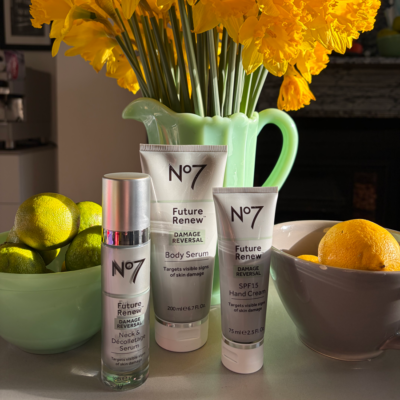While lots of products are marketed to help with acne, the best thing is to cut through the marketing and talk to a skin expert. Here is your private appointment with Professor Caitriona Ryan, for free …
June is Acne Awareness Month. But when you have acne, you’re aware of it every single day, let alone month. Acne is one of the top ten chronic diseases in the world, affecting approximately 9.4 per cent of the global population. And it affects all ages, as well as being common in teens: approximately 20-40 per cent of adult women experience acne; so do 40 per cent of men in their twenties. The impact goes beyond skin-deep; in a recent survey, over 70 per cent of Irish adults surveyed said their spots or acne affected their mental health.
While lots of products are marketed to help with acne, the best thing is to cut through the marketing and talk to a skin expert. So we asked Consultant Dermatologist Professor Caitriona Ryan, of the Institute of Dermatologists and Blackrock Clinic, and Associate Clinical Professor, University College Dublin, to set us straight about acne. Here is your private appointment with Professor Ryan, for free ….

Consultant Dermatologist Professor Caitriona Ryan, of the Institute of Dermatologists and Blackrock Clinic, and Associate Clinical Professor, University College Dublin.
What Causes Acne?
What are the most common misconceptions when dealing with acne?
“Acne doesn’t only affect teenagers. While the onset of acne usually happens at puberty, acne can affect up to 20 per cent of adult men and 35 per cent of adult women. It can often be more distressing to have acne as an adult. I am also seeing more acne in pre-pubertal children in recent years. Secondly, acne in teenagers is not caused by not washing. While a good cleansing regimen is important in acne, the primary cause of acne is hormonal changes leading to excess oil production and inflammation. And finally, acne is not caused by poor diet – we discuss this further below.”
Are there dietary/lifestyle aspects that make acne worse?
“The influence of diet on acne is highly controversial. There is limited evidence to support a link between diet and acne. A few isolated studies in the past have suggested that a high intake of dairy products, or foods with high glycemic loads (sugary or poorly refined carbohydrates) can trigger acne flares by increasing levels of insulin like growth factor (IGF)-1 leading to increased oil production. In the absence of robust evidence to suggest dietary modifications for acne, I typically just encourage my patients to have a healthy, balanced diet.
Stress can certainly cause acne flare-ups, as increased levels of stress-related hormones such as cortisol cause increased inflammation and send the oil glands into overdrive, clogging the pores and leading to breakouts.
Any significant hormonal fluctuations which upset the balance of androgens (testosterone-like hormones) and oestrogens can cause acne breakouts. This obviously happens at puberty, hence the onset of acne at this time, but the hormonal shifts which occur on stopping birth-control pills, during and after pregnancy, and with perimenopause can also cause significant acne flares.
Acne of the back and chest can sometimes worsen in those who exercise a lot because the bacteria that colonises our skin thrives in warm, moist environments. This can be avoided/reduced if you change out of your workout clothes and shower immediately after exercise.
Remember that make-up brushes accumulate oil, dirt and bacteria. Wash all brushes and sponges at least once weekly and keep them in a clean environment.”
Stress can certainly cause acne flare-ups, as increased levels of stress-related hormones such as cortisol cause increased inflammation and send the oil glands into overdrive, clogging the pores and leading to breakouts.
How To Treate Acne
And what affordable cleansers or treatments do you recommend?
“Do not waste money on expensive acne skincare systems or cosmetic treatments. One of the most frustrating problems I encounter in clinic is patients struggling with adult hormonal acne or rosacea who have spent thousands of euros on complex skincare regimens and treatments at cosmetic clinics when they just needed simple medical treatment. If your acne is not improving, visit your GP who will refer you to a dermatologist if appropriate.
For those with mild acne, there are lots of great over-the-counter affordable options available in your pharmacy or online. I love basic salicylic acid-containing cleansers that do not irritate the skin, as over-aggressive cleansing can cause inflammation of acne and redness of the skin – choose those that have moisturising and anti-inflammatory properties.
I also love Skingredients Sally Cleanse 2% Salicylic Acid Oil Control Cleanser [€33, www.skingredients.com] for my adult patients with acne-prone skin – this is only used every third night, and alternated with a gentle cleanser.

Vitamin A derivatives (retinoids) are an essential cornerstone of a good topical acne regimen to reduce comedones (blackheads and whiteheads), decrease pore size and reduce inflammatory breakouts. They also have a super bonus for those with adult acne, inducing collagen in the skin and decreasing fine lines. Higher-strength retinoids are typically only available over the counter in skincare clinics. My favourite is Skinbetterscience Alpharet Overnight cream. Irish pharmacies typically retail maximum concentration of 0.3% retinols – my favourite of these is the La Roche-Posay Retinol B3 serum.” [€45, at www.boots.ie]
What’s your best general advice for teens struggling with acne?
“Cleansing morning and evening is essential, preferably with a salicyclic acid-containing cleanser. Water alone will not remove the excess skin cells, oil, pollutants, skincare products and make-up that block the pores. Try to discourage your teen from picking or squeezing their spots as this can result in scarring – sometimes it’s my patients’ mothers who are squeezing the spots!
My most important advice, however, is to PLEASE seek medical attention if your teenager’s skin is not improving with over-the-counter products, or there is any evidence of scarring. The impact that uncontrolled acne can have on a teenager’s psychosocial functioning can be considerable. This is a formative time of their lives and having active acne (even acne that parents consider mild) can negatively affect their self-image, confidence and social interactions. It breaks my heart to see unnecessary irreversible scarring that could have been avoided with good medical care.”

What about the sun and acne – how do you balance wearing SPF with acne, and protect skin without exacerbating the condition?
“Choose a physical, zinc-containing SPF, as chemical SPFs – which work by making a chemical reaction with the skin to absorb UV – can inflame acne and rosacea. Also make sure your facial SPF is non-comedogenic (non-blackhead forming), as occlusive products block your pores. A top favourite with my male and female acne and rosacea patients is Elta MD UV Clear [€58, www.instituteofdermatologists.ie] which comes in a tinted or non-tinted formulation, is non-comedogenic and contains niacinamide, hyaluronic acid and lactic acid which help to reduce inflammation while hydrating the skin.”
Is isotretinoin still the main cure for really acute acne, and are there treatments that can be as helpful in getting rid of acne without the side effects?
“Yes, it is still the most effective treatment in those with severe acne and is the mainstay of treatment for those with scarring or cystic acne and those in whom acne which does not respond to antibiotics or recurs on stopping antibiotics. While other treatments can be effective in treating inflammatory acne, including antibiotics and hormonal treatments such as the oral contraceptive pill and spironolactone, unfortunately patients typically relapse on discontinuation of these treatments.
Isotretinoin is curative for the majority of patients – almost all patients experience complete clearance of their acne with a course of treatment (approximately six to eight months), and typically about two-thirds of patients remain clear forever. In those whose acne recurs, a second course of Isotretinoin usually results in permanent clearance. I took isotretinoin myself at the age of 20 for adult acne and it was life-changing for me.
Unfortunately there is a considerable amount of misinformation in the community and on the internet which can deter patients with severe acne from considering Isotretinoin treatment. Dryness of the skin, lips and eyes occurs in all patients. Isotretinoin will also increase skin sensitivity to the sun. Minor joint pains can occur after intense exercise. Occasionally mild liver inflammation and increased blood triglyceride levels can occur, but are usually not of clinical significance, and in my experience liver inflammation is much more common with the antibiotics commonly used to treat acne. It is essential not to become pregnant when on isotretinoin as it is a derivative of Vitamin A derivative which is toxic to the foetus.
Very rarely isotretinoin can lead to changes in mood and there have been isolated reports of patients attempting suicide. Interestingly, large database studies have not shown an increase in depression or suicide in patients taking Isotretinoin. In fact, the most robust studies have shown depressive symptoms improve in patients when they are on Isotretinoin – this is not surprising at all. As acne improves, confidence and happiness improve.”
www.instituteofdermatologists.ie
Meet The Expert:
Professor Caitriona Ryan, trained in Cosmetic Dermatology and is currently a Consultant Dermatologist at the Institute of Dermatologists and Blackrock Clinic, as well as an Associate Clinical Professor at University College Dublin.
LOVETHEGLOSS.IE?
Sign up to our MAILING LIST now for a roundup of the latest fashion, beauty, interiors and entertaining news from THE GLOSS MAGAZINE’s daily dispatches.










